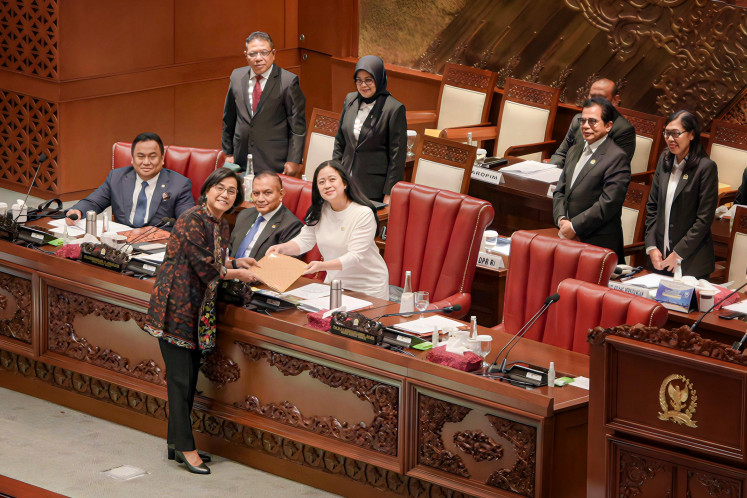Indonesia’s inflation rate rose significantly in 2022, due to the escalation of geopolitical tensions coupled with the post-pandemic economic recovery, which resulted in fluctuations in global commodity prices. In August 2023, Statistics Indonesia (BPS) recorded Indonesian inflation of 3.3 percent year-on-year (yoy), much lower than the 2022 inflation recorded at 5.5 percent yoy. However, the government remains vigilant.
President Joko “Jokowi” Widodo highlighted controlling inflation as one of the four priority agendas that must be completed in 2023. As the trend of inflation continuously slows down, the country has moved toward the targeted inflation target range of 3±1 percent yoy.
Nevertheless, the prices of several food commodities have also risen because of El Nino, which has impacted neighboring countries. However, the food inflation is still at a manageable level.
The continued downward movement of inflation certainly cannot be separated from the continuity of policies that continue to be consistently implemented. In Indonesia, the control of the rate is attributed to the successful synergy between the fiscal, monetary and real sector authorities.
At the 2023 National Coordination Meeting for Inflation Control, the President also mentioned that synergy and innovation from all parties involved are essential in maintaining price stability, especially in supporting sustainable food security.
In order to keep the rate down, various mitigation and policy measures have been designed as part of the national inflation control agenda, which continues to be orchestrated by the Central Inflation Control Team (TPIP) and the Regional Inflation Control Team (TPID).
The policy responses were designed to answer short-term challenges, such as price affordability, maintaining supply availability, ensuring smooth distribution and effective communication. We hope that stabilizing the short-term challenges will support the strategy to keep inflation in the medium term in the future.
The institutions were also given guidelines in implementing strategies for achieving inflation from both the upstream and downstream sides so that a balance between supply and demand can be created.
To create a strong foundation for economic growth, stable inflation is needed. By still paying attention to the economic situation which must continue to grow, an optimal inflation rate must be created as an incentive for the business world. On the other hand, inflation must continue to be contained in order to maintain people’s purchasing power, especially lower-middle income people. Access to food still needs to be maintained by controlling fluctuating food inflation.
To maintain purchasing power, the government has initiated various social protection programs to protect poor and vulnerable groups. Apart from that, the government also intervenes in prices and maintains the availability of food stocks and reserves to maintain price levels and control inflation.

For 2024, the government along with the parliament has set basic macroeconomic assumptions for inflation of 2.8 percent. This shows the country’s optimism that the inflation rate next year will remain between 2.5±1 percent, and shows the government’s commitment to maintaining the rate to support accelerated economic growth and efforts to maintain purchasing power amid obstacles.
To achieve this target, the government, together with Bank Indonesia (BI) through the TPIP and TPID, continue to synergize in creating short and long-term strategies. Consistency in maintaining price stability in the short term continues in an effort to reduce the risk of food price volatility on people’s purchasing power, while in terms of food production, the productivity of the agricultural sector needs to continue to be increased to maintain supply, supported by a food security budget allocation. Apart from that, the government will also continue to strive to reduce logistics costs to overcome regional price disparities with the support of the infrastructure budget.
“The state budget is always expected to be the main and reliable instrument in managing various potential upheavals. We must maintain the budget as a healthy and sustainable instrument because our development agenda is still very large,” said Finance Minister Sri Mulyani Indrawati.
From a fiscal point of view, the role of the state budget was optimized to reduce the impact of high volatility in global commodity prices on Indonesia, as was seen in 2022, where the inflation rate was lower than several countries.
Sri Mulyani added that the state budget was always used effectively and therefore continued to succeed in controlling the challenges of the pandemic and at the same time accelerating the momentum of Indonesia’s economic recovery.
It is hoped that the state budget will continue to be optimal in carrying out its role as a shock absorber, especially in facing an economy full of uncertainty in the coming years. Ultimately, the government, both central and regional, must continue to collaborate with BI and other stakeholders to achieve controlled inflation, as a solid foundation for strong and sustainable economic growth.
Source : TheJakartaPost
















